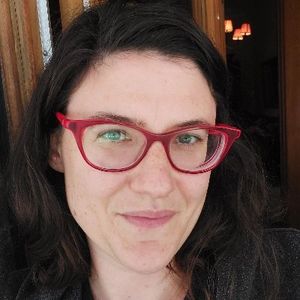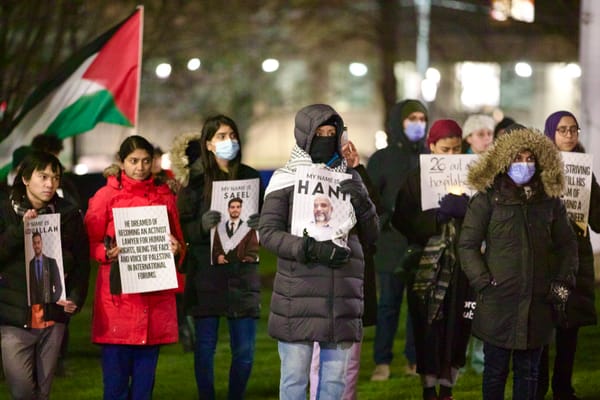Since March 2020, I’ve come to understand the radical power behind accounting for the dead: adding, naming, listing, publishing — record keeping.
I created a database of COVID-19 deaths — the people who died while in the care of someone else from a virus that they were powerless to stop. I counted the dead because no official Canadian agency was doing so. Days would slip into the past, and disparate numbers on official websites would vanish. Some researchers archived them. I counted.
I draw on these numbers frequently: the number of Black workers killed by COVID-19 they caught on the job (21 of 46 where the race was known, thus far), the number of shelter users reported dead (at least 15), the number of residents in a facility owned by a particular boss. Counting has given me instant access to the data needed to draw a compelling story of failure, loss, suffering and trauma — the human toll of the pandemic
Under the cover of the pandemic, the Canadian government made significant changes to end-of-life legislation, expanding access to medical-assisted suicide. Medical Assistance in Dying (MAID) was once reserved for individuals whose deaths were imminent. Now, someone can seek MAID because of incurable illness and disability alone.
In February 2021, a month before an expanded MAID was passed into law, I wrote this for Passage: “Poverty, insecure housing, a lack of resources and an ableist and inhumane healthcare system all impact the dignity of people living with disabilities. Activists argue that these factors need to be addressed before MAID is expanded. Otherwise, they worry, people will choose death simply because their life has been rendered so undignified by social supports that it seems like a better option than continuing to live.”
Proponents of MAID usually point to heartwarming stories of individuals who decided to end their lives surrounded by loved ones, pulling the plug on their terms, such as 37 year old Jennyfer Hatch whose decision to access MAID due to complications related to a chronic illness was documented in a video produced by Quebec City retail giant Simons. But what these stories often miss is the classed nature of such a decision. Expanded MAID preys on disabled people who are given insufficient support from the state. Lives are being lost because MAID is the only public policy offered to some poor disabled individuals.
Soon, MAID will be expanded to individuals who have mental illness. While many activists are trying to resist this expansion, Liz Kessler has decided that her resistance will be to count. She’s crowdsourcing information about individuals who have chosen MAID because they were unable to access services to live a fulfilling life with their disabilities.
The Google Sheet Kessler has created allows for people to submit information of MAID deaths or approved cases of MAID, whether on behalf of people they knew or by referencing media reports, where it’s documented that some kind of support would have helped keep the individual alive. People are only included in the list if they cited “either poverty, inadequate disability supports, or inadequate health care access as the reason they consented” or if their family believes that consent “was inadequate” at the time of the decision, for example due to being in the midst of a mental health crisis.
The list contains 14 entries thus far, ranging in age from 31 to 83. A month ago, City News featured the story of Amir Farsoud, a disabled man who had applied to MAID because he couldn’t afford to live off of Ontario’s inadequate disability support payments. He had one of the two requisite signatures from doctors on his application. With no supports to live, Farsoud felt his only option was to take his own life, and MAID promised to do that for him. He’s exactly the kind of person opponents of expanded MAID referred to as being vulnerable.
But Farsoud’s story tugged on enough heartstrings that over the next several weeks, a GoFundMe set up by an anonymous individual netted him enough money to be able to pay for his necessities. “If the story hadn’t piqued your interest … I’d be dead,” Farsoud told journalist Cynthia Mulligan, reminding viewers that there are thousands of others in Ontario in the same situation who need help that doesn’t rely solely on the kindness of strangers.
In 2021, according to a report from the Government of Canada, the number of people killed by MAID increased by 32.4 per cent from 2020. Also, last year “2.2 [per cent] of the total number of MAID provisions (219 individuals), were individuals whose natural deaths were not reasonably foreseeable.” This number represents far too much death among individuals who couldn’t live fulfilling lives because of a lack of support for dealing with their disability/disabilities. If every one of those individuals was drawing an average CPP disability benefit of $1,053 per month, the federal government saved more than $2.7 million by helping them die. Indeed, there’s a financial incentive to push people to MAID in order to avoid having to pay for their daily bread.
Over the course of the pandemic, expanded MAID was the most significant change in federal healthcare policy. There have been no permanent significant social supports established for disabled people, guaranteed income projects, financial supports or rent controls, or creation of new financing programs for assistive devices. Instead, the government has said: We will make it easier for you to choose to die, but we won’t give you what you need to have a fulfilling life.
It’s what advocates said would happen, and now, more than a year and a half after the legislation passed, at least we’ll know the names of some of the victims.







